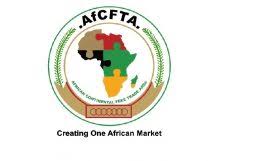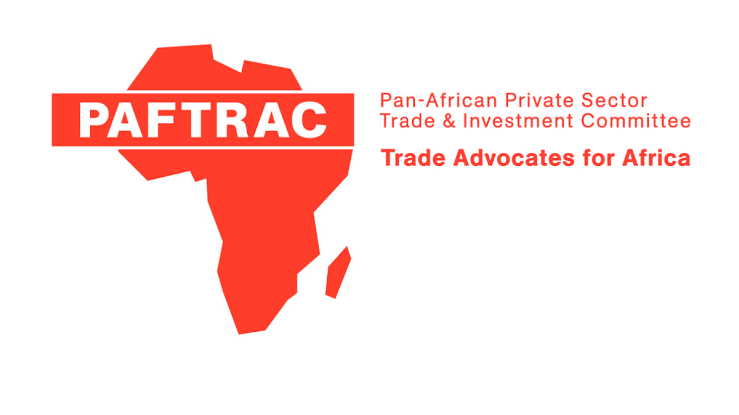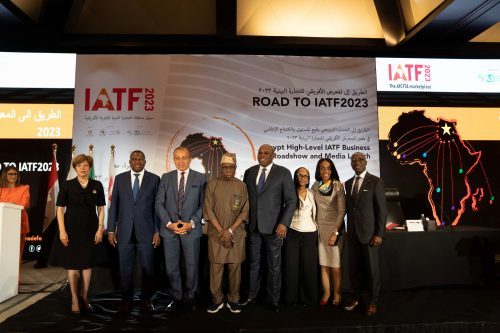Nigeria and Uganda have strengthened their trade relations following the appointment of Ani Bassey-Eyo as Uganda’s Trade Representative to Nigeria. This move aligns with the implementation of the African Continental Free Trade Area (AfCFTA) agreement, which aims to boost intra-African trade and economic cooperation.
The appointment was followed by the signing of commitment export orders, paving the way for Uganda’s first official shipment of goods to Nigeria. The event, held in December 2024, coincided with the commissioning of the Free Zones Export facility at Entebbe International Airport and the launch of Uganda’s AfCFTA Implementation Strategy, reinforcing the country’s commitment to expanding trade under the continental pact.
Ugandan President Yoweri Museveni, who witnessed the signing, described regional trade as a catalyst for economic transformation. “I am pleased to kick off the journey for the first formal exports of Ugandan products to West Africa under AfCFTA,” he stated. Museveni emphasized that as Africa awakens to its economic potential, relying solely on domestic markets is insufficient. Instead, expanding trade across the continent is necessary for sustainable growth and development.
The first shipment, expected in the first quarter of 2025, will include coffee, black and green tea, milk, fish, and pharmaceuticals. This pilot consignment will assess market demand in Nigeria and serve as a foundation for future trade expansion. Ugandan officials expect this trade initiative to unlock more opportunities for the country’s agricultural and manufacturing sectors, enabling local businesses to access new markets.
Museveni commended Nigerian President Bola Tinubu for supporting the initiative and facilitating Ugandan products’ entry into the Nigerian market. He also urged African nations to strengthen commercial ties and harness the continent’s vast economic potential by leveraging the AfCFTA framework.
Uganda’s Minister of Trade, Industry, and Cooperatives, Francis Mwebesa, highlighted the role of free zones in attracting investment and creating jobs. He noted that establishing trade hubs, such as the Free Zones Export facility at Entebbe International Airport, enhances Uganda’s ability to export value-added products, increasing competitiveness in African markets.
Similarly, Permanent Secretary Lynette Bagonza praised the collaborative efforts of government ministries and the private sector in shaping Uganda’s trade strategy. She emphasized the importance of coordinated policies, infrastructure development, and private sector engagement to ensure Uganda maximizes its trade potential.
Uganda’s push into the Nigerian market is part of a broader strategy to position itself as a regional trade hub. The country aims to expand exports beyond Nigeria to other AfCFTA member states by leveraging trade corridors and improving infrastructure. Officials have expressed optimism that Uganda’s participation in AfCFTA will drive economic diversification, increase foreign exchange earnings, and create employment opportunities.
The African Continental Free Trade Area, launched in 2021, is designed to create a single market for goods and services across 54 African countries. By reducing trade barriers, AfCFTA is expected to boost intra-African trade, encourage industrialization, and enhance economic integration.
For Uganda, tapping into AfCFTA’s benefits means increasing exports of high-value goods while reducing dependence on traditional trading partners outside Africa. By entering Nigeria’s large consumer market, Uganda seeks to expand trade in key sectors such as agriculture, pharmaceuticals, and manufacturing.
Trade analysts believe that the successful implementation of AfCFTA will not only strengthen Uganda-Nigeria trade relations but also encourage other African nations to enhance cross-border trade. However, challenges such as infrastructure deficits, logistical constraints, and non-tariff barriers must be addressed to fully realize the agreement’s potential.
With Uganda’s first shipment under AfCFTA set to commence, stakeholders are optimistic that this marks the beginning of deeper trade ties between East and West Africa, fostering economic growth and regional integration across the continent.










